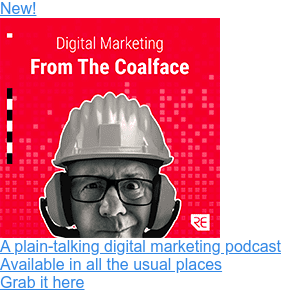When an SEO is brought into the fray to help a company get more bang for its web buck it's often the simple things that have the greatest impact. Knocking the title elements into shape, creating human readable URL's, writing concise page descriptions, sorting out the on page tagging and not least writing great content.
Quality Data
However, describing these activities as Search Engine Optimisation suggests some amount of search engine gaming when in fact all the SEO is doing is website quality control. To make the point let's look at some common, so called SEO, activities and how the W3C suggests these page elements are used correctly.
Page Title
First the TITLE element. The W3C describes the TITLE element thus:
'Authors should use the TITLE element to identify the contents of a document. Since users often consult documents out of context, authors should provide context-rich titles. Thus, instead of a title such as "Introduction", which doesn't provide much contextual background, authors should supply a title such as "Introduction to Medieval Bee-Keeping" instead.'
So, by writing TITLE elements that use keywords from the content and describe the content all the web page author is doing is using the TITLE element in the way it was designed to be used. Nothing more, nothing less. Sorting the TITLE elements isn't an SEO activity, it's just quality control.
Get The URL Right
Next the URL. The W3C suggests the following for a URL structure.
'URLs typically consist of three pieces:
- The name of the protocol used to transfer the resource over the Web.
- The name of the machine hosting the resource.
- The name of the resource itself, given as a path.'
So, HTTP - the name of the protocol. www.yourdomain.com - the name of the machine hosting the resource and /widgets - the name of the resource itself. Not so much SEO as simply quality control.
Meta Descriptions
Now the META DESCRIPTION. The W3C describes META data thus:
'HTML lets authors specify meta data -- information about a document rather than document content -- in a variety of ways.'
So in a nutshell the META DESCRIPTION element should be used to describe the contents of the page. Not really SEO, just quality control.
Finally the on page tagging. The W3C describes headings thus:
'A heading element briefly describes the topic of the section it introduces. Heading information may be used by user agents, for example, to construct a table of contents for a document automatically.'
So using H1, H2 tags etc is simply creating a logical breakdown of a page and its contents, not really SEO, just quality control.
Websites often ignore these basic elements in favour of bells and whistles. In short they have no quality control intrinsically built in during the build phase leaving the SEO, I mean quality control inspector, to pick up the pieces.
Ethical Link Building
You can stretch this point further. Links, the much abused life blood of a page's performance, exist to let other people know about useful resources and if page A links to page B it implies trust and effectively a vote of confidence. Of course, links are abused and must be on Google's radar for algorithm updates. That aside securing links ethically is simply part and parcel of owning and running a website, it's not specifically an SEO activity as every website owner should surely be looking to establish their site as a trusted source of information and links supply that trust.
Anyway, that's enough for now. It's just a point of view but when you think about it you wouldn't call a mechanic a car engine optimiser just because be puts oil and water in the respective orifices. Putting oil and water in is a given just as constructing a web page correctly should be.
We're an Edinburgh-based SEO agency that helps businesses like yours thrive online.



